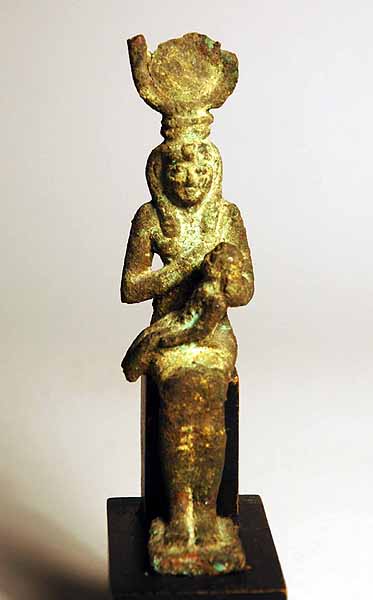Metal and wooden statuette representing the goddess Isis sitting on
her throne, while suckling her child Horus, dating to the Ptolemaic
Period (300-30 B.C.), now in the Yale Peabody Museum of Natural History,
Yale University, New Haven, CT, USA.
Isis, daughter of the Earth god and of the Sky goddess, at the same
time sister and wife of Osiris, was one of the most important Egyptian
deities. Shown in the act of feeding the infant Horus, she represented
an example of all the virtues of motherhood, and she was also protective
for women in childbirth and their babies. In the New Kingdom and in
Ptolemaic and Roman Periods the cult of Isis absorbed the characteristics
of other female deities, among whom the goddess Hathor, the most ancient
mother goddess, often represented in the shape of a cow. This association
explains the presence of a pair of horns, framing a solar or lunar disk,
that decorate the goddess’s head.
[Image: http://library.artstor.org/library/]


